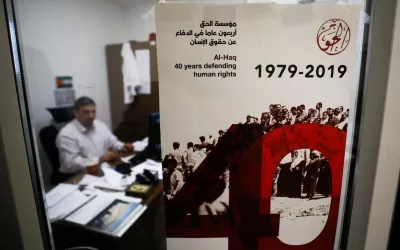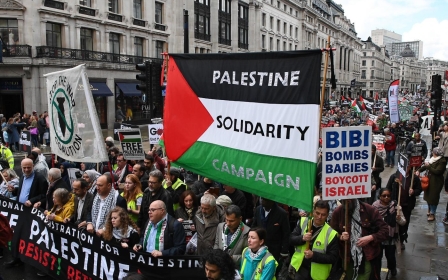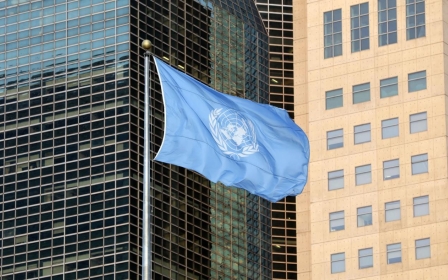Israel: US voices support for civil society groups targeted by legislation

The United States on Wednesday voiced support for non-governmental organisations targeted by new Israeli legislation that seeks to curtail their work.
On Sunday, an Israeli parliamentary committee is set to debate a bill that would significantly limit the ability of Israeli civil society groups to accept funding from abroad.
US State Department spokesman Matthew Miller has asked to comment on the legislation, saying: “I will just say that as a general matter, the United States supports the essential role of NGOs that are part of civil society.”
“We believe that they are critical to democratic, responsive, and transparent government, and we firmly believe that civil society should have the opportunity and space to operate and raise resources around the world,” Miller added.
According to the bill, a non-profit group that engages in public advocacy two years before or after receiving a donation from a foreign government would no longer be considered a public institution and would have any tax exemption privileges stripped.
New MEE newsletter: Jerusalem Dispatch
Sign up to get the latest insights and analysis on Israel-Palestine, alongside Turkey Unpacked and other MEE newsletters
In addition, those groups will be hit with a 65-percent income tax.
The bill would likely severely hinder the work of human rights organisations that operate in Israel and the occupied West Bank, East Jerusalem, and the Gaza Strip, many of which rely on funding from foreign governments.
The bill was a condition set by far-right National Security Minister Itamar Ben-Gvir's Jewish Power party in return for joining Prime Minister Benjamin Netanyahu's coalition.
'Foreign interference'
In an explanatory note, the bill's authors explain that the aim is to limit foreign "interference" in Israeli democracy, legal matters, political endeavors, government policies, municipal policies, or public opinion at large.
In recent years Israel has implemented laws and regulations aimed at restricting the foreign funding of certain NGOs.
In 2016, Israel passed the "NGO Transparency Law," requiring NGOs that receive more than half of their funding from foreign governments to disclose this information in their official communications. Critics argued at the time that this law unfairly targets human rights and peace organisations.
Israeli officials have accused NGOs of being biased against Israel or engaging in what it considers anti-Israel activities. Critics argue that such accusations are attempts to delegitimise and discredit these organisations.
This has led to tensions between the Israeli government and certain NGOs.
In 2019, Israeli forces raided the offices of seven Palestinian NGOs in the West Bank: Al-Haq; Addameer; the Bisan Center for Research & Development; Defense for Children International-Palestine; the Union of Palestinian Women's Committees; the Union of Agricultural Work Committees; and the Union of Health Workers Committees (UHWC).
Israeli authorities stated that the raids were conducted as part of an investigation into organisations with links to the Popular Front for the Liberation of Palestine, which is considered a terrorist group by Israel.
However, human rights advocates raised concerns about the raids, stating that they targeted legitimate NGOs working on human rights and social justice issues.
Despite Israeli attempts to outlaw these groups, European governments, the UN, and the US maintained their relationships with the organisations.
Israel declared all of the groups it raided, except UHWC, "terrorist groups" - a claim repeatedly denied by the NGOs.
The European Union has rejected Israel's actions, saying in a statement that they would "continue to stand by international law and support [civil society organisations] that have a role to play in promoting international law, human rights, and democratic values".
The United Nations also condemned Israel's move, with UN experts calling on the international community to continue, and even increase, funding for the groups.
Middle East Eye delivers independent and unrivalled coverage and analysis of the Middle East, North Africa and beyond. To learn more about republishing this content and the associated fees, please fill out this form. More about MEE can be found here.





